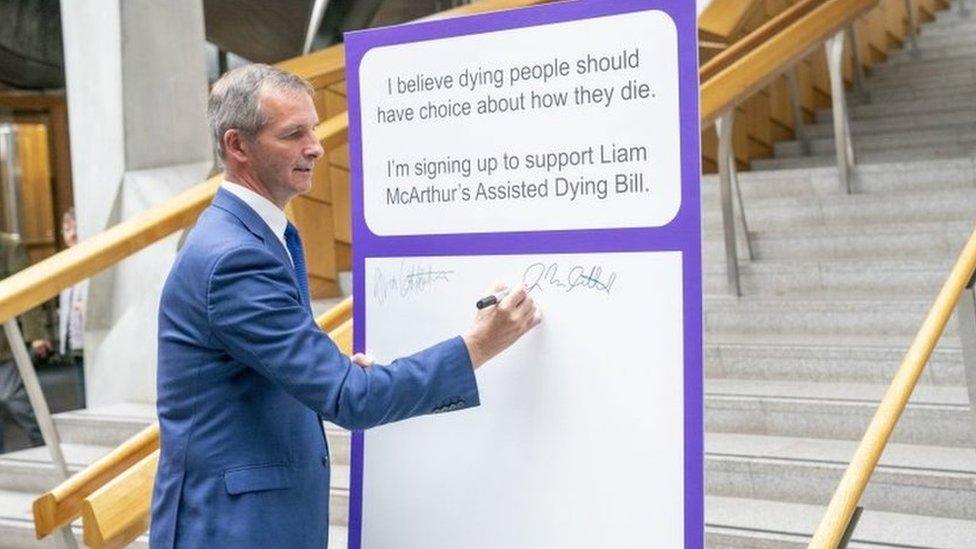MSP wins right to introduce assisted dying bill at Holyrood
- Published

Orkney Islands MSP Liam McArthur will now draft the bill with the intention of introducing it early next year.
An MSP has won the right to introduce a member's bill in Scottish Parliament which would legalise assisted dying for terminally ill people.
Scottish Lib Dem Liam McArthur put forward a final proposal to parliament last month, in a bid to gather cross-party support.
He received backing from 36 MSPs, well beyond the threshold that would allow him to introduce the bill.
The Orkney Islands MSP plans to introduce the bill early next year.
Mr McArthur thanked MSPs who put their names behind the bill. He added that the support he received had been "deeply heartening" and showed that there was a need to end the ban on assisted dying in Scotland.
"The Scottish public has long been ahead of the parliament on this issue. The public consultation on these proposals, published last month, demonstrated that there is strong and passionate support for offering people more choice at the end of their life," he said.
The public consultation on assisted dying received a record 14,038 responses, with around three quarters of respondents supportive.
The legislation would require two doctors to confirm the person was terminally ill, show that the person had the mental capacity to make the decision to request assisted dying and make sure the decision was made without coercion.
It is also suggested there would be a 14-day reflection period.
The MSP Margo MacDonald, who had Parkinson's disease, tried unsuccessfully to change the law on assisted dying in Scotland in 2010.
She later launched the Assisted Suicide (Scotland) Bill in 2012 but died in 2014. The campaign was taken over by Green MSP, Patrick Harvie, but the bill was also unsuccessful. MSPs, in a free vote, rejected it by 82 votes to 36.
Groups opposing the measure have voiced concerns that it would undermine the rights of disabled people and those with mental health conditions.
Fears have also been raised that it would affect palliative care and put pressure on vulnerable patients who see their lives as a burden.